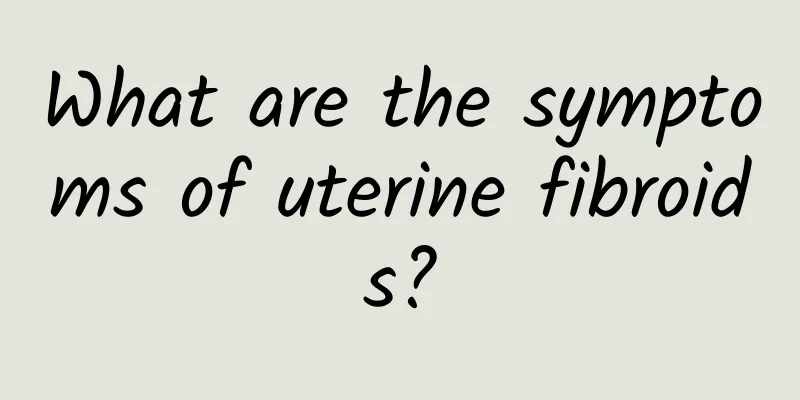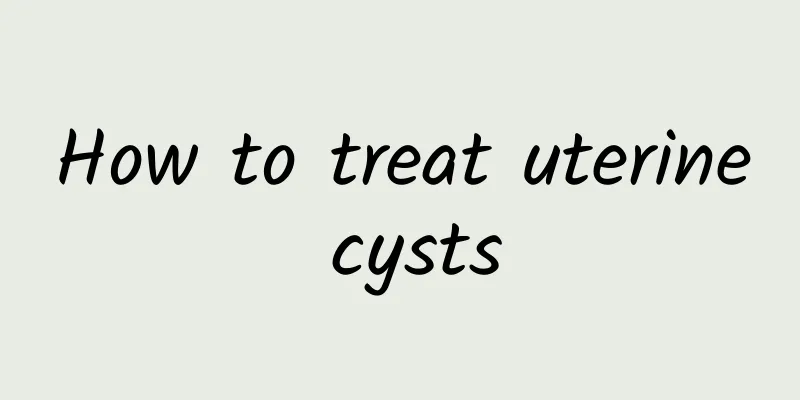What are the symptoms of uterine fibroids?

|
Uterine fibroids are a common benign tumor that mostly occurs in women of childbearing age. The main symptoms of uterine fibroids include menstrual abnormalities, abdominal masses, compression symptoms, pain, and infertility. If the symptoms persist, it is recommended to seek medical attention in a timely manner and take targeted treatment measures under the guidance of a doctor. 1. Menstrual abnormalities: Uterine fibroids can cause increased menstrual flow, prolonged menstrual periods, or intermenstrual bleeding. Medication, such as hormone drugs, can be used to regulate menstruation. In severe cases, surgical treatment, such as hysterectomy, may be required. 2. Abdominal mass: When the uterine fibroids are large, a mass can be felt in the lower abdomen, accompanied by abdominal distension and discomfort. Monitor the size of the mass regularly. If the mass increases or causes obvious discomfort, surgical removal may be considered. 3. Compression symptoms: The enlargement of fibroids will compress the bladder or rectum, leading to symptoms such as frequent urination, dysuria or constipation. Depending on the specific situation of the compression, appropriate treatment is carried out, such as medication to relieve symptoms or surgery to relieve the compression. 4. Pain: Some patients may feel pain in the lower abdomen or lower back, especially during menstruation or sexual intercourse. Painkillers can be used to relieve the pain. If the pain is severe, medical examination is required and treatment is carried out according to the cause. 5. Infertility: Uterine fibroids may cause infertility or miscarriage. For patients who want to have children, conservative treatment or surgical treatment can be taken under the guidance of a doctor to increase the chance of pregnancy. In order to prevent and relieve the symptoms of uterine fibroids, you should pay attention to maintaining good living habits, have regular gynecological examinations, seek medical attention in a timely manner if any abnormalities are found, and follow the doctor's orders for treatment and care. |
<<: What is cervical hypertrophy? Do I need treatment?
>>: What causes cervicitis and how to treat it
Recommend
If you want to stay away from dysmenorrhea, please remember some dietary principles
Nowadays, many women feel uncomfortable for a few...
What are the symptoms of endometritis? You can judge based on these four symptoms
Endometritis is a common disease that occurs in t...
Can I get pregnant with an ovarian cyst? What are the symptoms?
Can you get pregnant with an ovarian cyst? What a...
How to regulate irregular menstruation for women? Diet therapy for irregular menstruation for women
What to do with irregular menstruation? In additi...
If you lose weight and have a 4-year history of diabetes, your risk of developing pancreatic cancer, the "king of cancer," is 3 to 4 times higher!
Pancreatic cancer, also known as the king of canc...
Mid-Autumn Festival reunion is not a happy one~ Beware of the four high-calorie mines during the Mid-Autumn Festival
Mid-Autumn Festival is an important traditional f...
Celebrities love skipping rope to burn fat and lose weight, and Guo Xuefu has a good figure by skipping rope! 3 unexpected benefits of skipping rope
Skipping rope is a combination of aerobic and ana...
What medicine can cure moderate inflammation of cervical erosion?
What medicine can cure moderate inflammation of c...
Why do fat people have nosebleeds?
Nosebleeds in fat people may be caused by fragile...
Common preventive measures for dysmenorrhea in life
Among the many diseases during menstruation, dysm...
A cup of cocoa a day may reduce risk of dementia
According to statistical analysis, the top three ...
Subendometrial fibroids symptoms
Subendometrial fibroids symptoms: Uterine fibroid...
250,000 sit-ups can help you lose 0.5 kg
Recently, white-collar workers who are busy fight...
Top 10 snacks that will make you craving for calories! 4 nougats = 1 bowl of rice
The 9-day Lunar New Year holiday is undoubtedly a...
What are the treatments for uterine fibroids? Dietary conditioning methods for uterine fibroids
What should I do if I have uterine fibroids? Uter...









